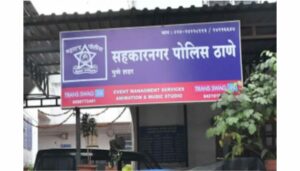Women must prioritize their health
“Just as we invest in health insurance, it is imperative to invest in one’s health. It is the most important insurance,” says Dr Shona Nag a senior consultant medical oncologist at the Jehangir Hospital in Pune. Speaking as a moderator, she raised this important point at Urja 2017 held recently in Sheraton Grand where the theme was ‘Your Health, Your Responsibility.’
The forum’s other panelists from Jehangir Hospital, Dr Kayanoosh Kadapatti – Intensive Care Specialist and Head of ICU in Jehangir Hospital, Dr Anupama Mane, Consultant Breast Surgeon and Head of Department, Breast Surgery in Jehangir and Niloufer Ebrahim, Consultant Psychologist and Head – Jehangir Wellness Centre, shared their views in discussion. They raised vital point about women’s neglect of their own health in their quest to balance their responsibilities towards others in the family.
Giving a historical perspective in women’s health, Dr Kadapatti shared how the scenario of heart attacks has changed over the last decade or 15 years. “Back then, heart attacks were misdiagnosed, there were standard diagnostic techniques, screenings were considered unimportant and there was a lack of communication. However, now, symptoms in women are well known and treated effectively, there is more reliable gender specific testing, screenings and prevention is extremely important,” she said.
She further added that heart disease in women is difficult to diagnose since they don’t show a clear clog and tend to downplay their own symptoms. “Both men and women accumulate plaque on the walls of the blood vessels. As time goes on the plaque builds up and causes clogs in the blood vessels. As a result, blood flow is disrupted or stopped causing a heart attack or a stroke. The difference is that men, build up plaque in clumps or bulges whereas in women the plaque is spread more evenly along the vessel lining,” she said.
The discussion also revolved around the fact that it is important to observe a healthy lifestyle since it plays an important role in well-being. “Wellness is multidimensional. Being physically fit is not enough to be well. The dimensions of health and wellness include the emotional – mental, intellectual, social, spiritual, and physical aspects. Each of these are vital factors. Additionally, we can include environmental and occupational dimensions. While the environment and one’s vocation can certainly influence the adoption and maintenance of healthy lifestyles, they are not viewed as independent (or personal) dimensions of wellness,” clarified Niloufer Ebrahim.
In the discussion, Dr Anupama Mane spoke about breast health and breast, cervical cancer and HPV. She emphasized on the importance of self breast exam and mammogram. “The symptoms include a lump in the breast or underarm, hardening or thickening of breasts, change in size and shape of the breast, change in colour or appearance of the breast skin or areola, nipple pulled into areola or discharge or bleeding from the nipple. In case of these symptoms, women should immediately consult with a specialist,” she explained.





